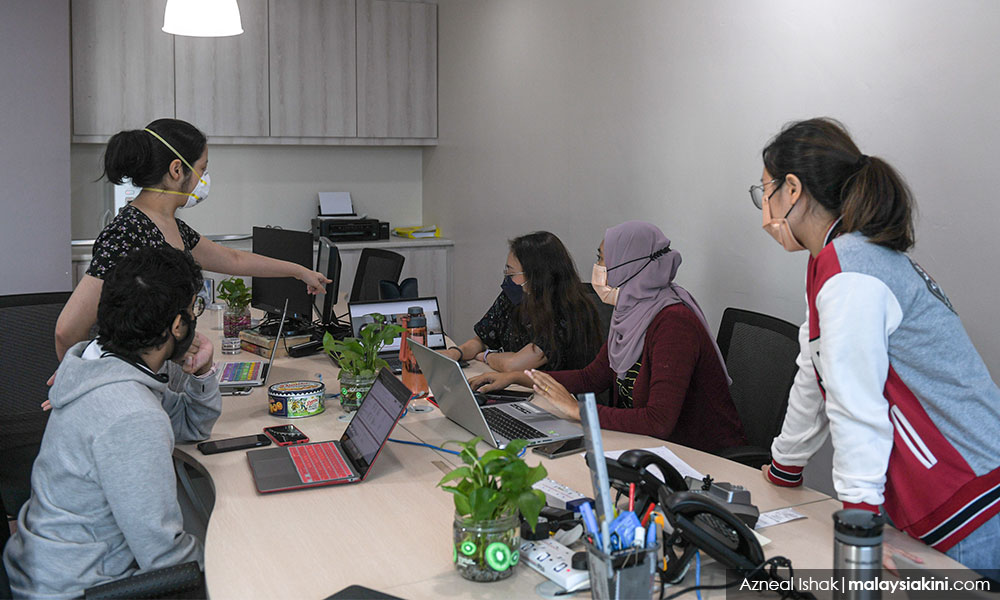The world once again celebrates International Women’s Day today and rallies behind the call to “Invest in Women: Accelerate Progress” - the theme for this year.
Achieving gender equality in the workplace remains a focal area that demands accelerated progress in the women's empowerment agenda.
Investing in women is an attractive incentive for governments as women constitute a significant human resource base in many countries.
Women's participation in the productive economy not only expands the workforce and contributes to economic growth but, more importantly, is essential to women's own economic security, enabling them to shape their future and family without being solely dependent on men.
Reaching 60pct, an achievable target?
With Malaysia’s women labour force participation rate (LFPR) in 2022 still low at 55.8 percent compared to 81.9 percent for males, narrowing this gap has been identified as one of the targets under the Madani Economy Framework announced last year.
The government aims to increase the women's LFPR to 60 percent within the next 10 years to further unlock women's potential in productive economic activities.
Addressing care challenges that have been keeping women at home and creating conducive working arrangements have been identified as key to achieving the target.
Accordingly, several gender-responsive initiatives have been introduced, including incentives to encourage women to return to work and childcare-related subsidies and tax reliefs.
Despite the various initiatives, progress has been slow. Between 2018 and 2022, women’s LFPR continued to hover around 55 percent, while men recorded a 1.5 percentage point increase in the same period.

This disparity should be viewed seriously considering women generally attain higher levels of education than men, yet underperform in the labour market. Essentially, 44.1 percent of the women in the labour force obtained an STPM certificate and above, surpassing men with 35.8 percent.
In absolute terms, the number of women outside the labour force exceeds that of men by 2.3 times, at 4.95 million and 2.16 million respectively in 2022.
Undeniably, a significant improvement occurred between 2011 and 2018, with an additional 1.38 million women joining the workforce.
However, the rise was partly explained by the increase in own-account workers - more precarious in nature- which grew from 11.2 percent of employed women in 2011 to 19.5 percent in 2018, translating to an additional 627,500 women workforce.
Dissecting women's LFPR further across different age groups reveals that it peaks at ages 25 – 29 at 77.5 percent.
Considering Malaysian women's marriage age is 27 on average, women’s presence in the workforce gradually declines for all subsequent age groups as it later coincides with childbearing and parenting years.
The above situations highlight Malaysia’s persistent challenge in fully harnessing the nation’s human capital potential.
Paid and care work trade-offs
The primary reason why women opted to stay outside the labour force is due to caregiving and housework responsibilities.
Data shows that 3.1 million or 62.9 percent of women outside the labour force cite family responsibilities as their reason for not seeking work, in stark contrast to a smaller share of men, only 2.3 percent or 50,500, who cite similar reasons.
Women generally shoulder more caregiving and domestic work than men. Globally, women perform an overwhelming 76.4 percent of unpaid care work, spending an average of 4.5 hours per day, compared to men with 1.4 hours.

In Malaysia, Khazanah Research Institute’s (KRI) pilot Time Use Study conducted in 2018 found that women spent 63.6 percent more time on unpaid care work compared to men, despite both dedicating comparable time to paid work.
This underscores the "double burden" or the "second shift" that woman undertake, managing caregiving and housework after completing their first shift in the workplace.
Redistribute care work
Malaysia must take further measures to accelerate women’s workforce participation if it is to achieve the 60 percent target.
The marginal progress in the last few years could also extend beyond trade-offs between paid work and caregiving responsibilities.
Other factors, such as sociocultural norms, may also play a role, necessitating countermeasures if they are hindering progress.
Nevertheless, it is important to ensure that the advancement of women in the workforce does not come at the expense of their well-being and security.

Pushing women to work without the appropriate balancing act may adversely affect them, especially when they undertake work more precarious in nature, simultaneously worsening the “double burden” they have been shouldering.
Hence, it is equally important to ensure decent work for women and reconfigure the distribution of caregiving responsibilities, both within and outside the home.
Within homes, there needs to be a redistribution between men and women involving greater participation of men in caregiving roles.
Redistribution outside the home entails expanding care service provisions by entities beyond the family unit such as the market, the not-for-profit organisation and the state.
This requires a holistic assessment of the prevailing care arrangements to accommodate the needs of the women workforce, including expanding affordable and quality formal care services and professionalising care work that aligns with the decent work agenda. - Mkini
HAWATI ABDUL HAMID and PUTERI MARJAN MEGAT MUZAFAR are researchers at the Khazanah Research Institute (KRI).
The views expressed here are those of the author/contributor and do not necessarily represent the views of MMKtT.



No comments:
Post a Comment
Note: Only a member of this blog may post a comment.